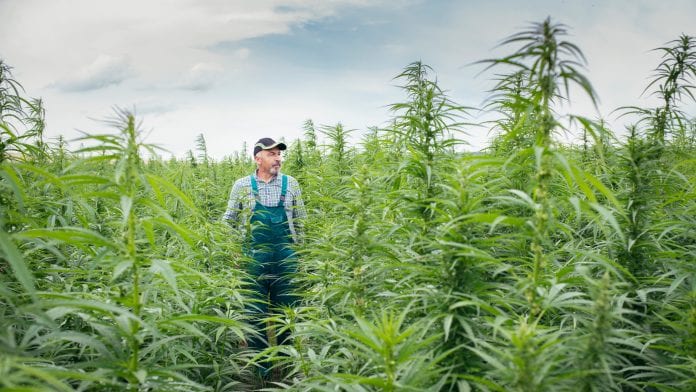
A new report co-ordinated by third sector drug policy reform organisation Volteface has today been released, promising a solution to ‘draconian, pointless’ hemp legislation.
The Pleasant Lands report has been written with leading licensing barrister of Francis Taylor Gary Grant, leading cannabis solicitor, Rob Jappie of Ince, and Lily Temperton of cannabis consultancy Hanway Associates. The paper, which has been backed by Conservative MP Crispin Blunt, outlines the economic and environmental benefits of embracing hemp, by promising to boost ‘the government’s promised green recovery and kick start the economic bounce back by boosters coffers’ to the Treasury’s much-depleted finances.
The British CBD market is currently worth £300m, with estimates valuing the market at around £1bn by 2025.
Solutions to UK policy
In the last few weeks, DEFRA Minister Victoria Prentis has discussed solutions to hemp policy, whilst George Freeman MP has championed hemp reform and investment as part of the Taskforce for Innovation, Growth and Regulation.
The report calls for a model which imitates the Swiss model, whereby farmers can grow crops containing up to 1% THC, and streamlining licensing to allow for farmers to extract CBD from the whole hemp plant, with basic licences only currently permitting the extraction of stalks and seeds.
Under current legislation farmers are forced to burn up to 80% of the crop, including the flower, which is the most valuable and CBD-rich part of the hemp plant. Hemp and extracted CBD are non-psychotropic, but the policy is tied up with costly and bureaucratic licensing which makes the crop financially impossible to benefit from.
CBD is available on the shelves of major retailers including Holland & Barrett and Boots, but UK farmers are unable to extract CBD from hemp flower due to a UK Home Office policy requiring its destruction, leaving the UK reliant on imports.
Many European countries permit the sale of hemp flower and its extraction for CBD, placing UK farmers at an unfair disadvantage. CBD is classed as a novel food, not a narcotic – but British farmers are stuck in a paradoxical situation which means they are losing out on the ability to supply the thriving consumer CBD market.
The issue is linked to EU-policy and subsidies which the UK is now moving away from. The vast majority of CBD on offer in shelves of UK wellness shops is imported from Switzerland. Switzerland, not bound by the EEA, is the only European country that allows a threshold of 1% THC whilst the EU has a threshold of 0.2%. Leaving the EU opens an opportunity for the UK to imitate the Swiss guidance and allow British farmers to capitalise on this growing market.
The UK could be a global leader in CBD
The move would help to demonstrate legislative sovereignty after leaving the EU and could open up Britain to be a medical cannabis and CBD leader in Europe, with cannabis companies recently receiving the green light to list on the London Stock Exchange for the first time.
The report proposes a simple policy amendment, enacted by a letter from the relevant Secretary of State, which would ‘unlock the nascent hemp and CBD industry’ – a growth industry potentially worth billions of pounds to British farmers.
Volteface highlights that encouraging British farmers to grow the crop would create a number of rural skilled and low-skilled jobs which would level up prosperity in rural communities – a pledge that the government is under pressure to deliver on.
Hemp as a building material should also be championed as part of a pledge to build back better, using British grown hemp materials that are net carbon zero.
The full report can be found at: https://drive.google.com/file/d/1KeohWWORYZ1iv_B59JlxH6WfuiU9-n7n/view.


















